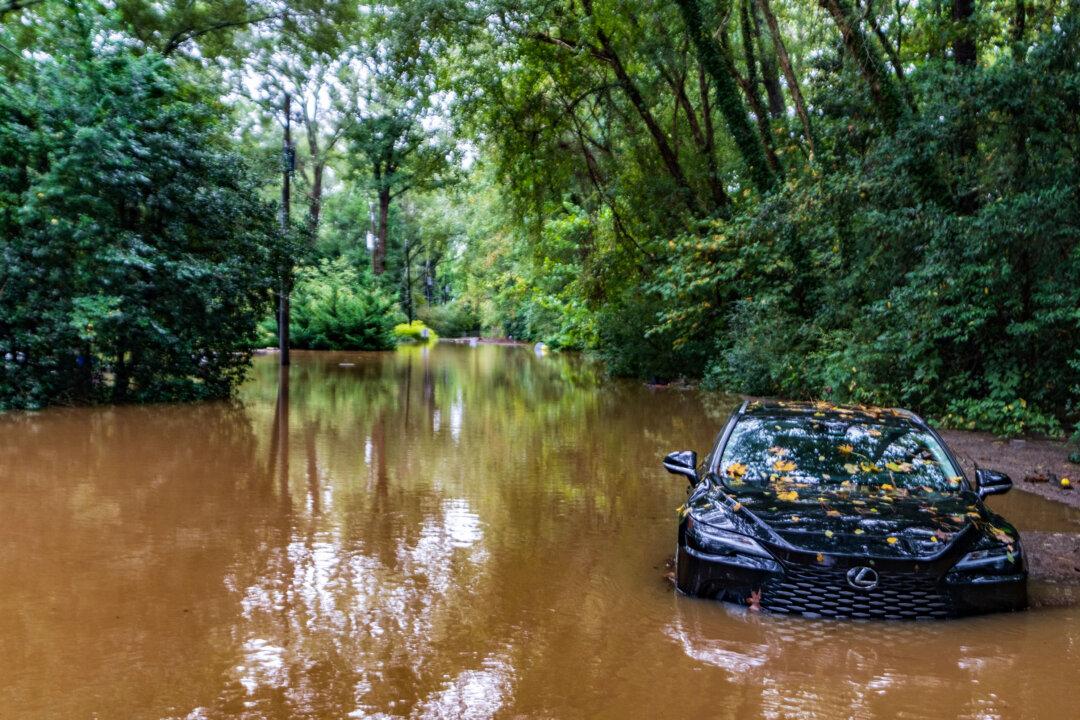Officials have warned electric vehicle (EV) owners in the path of Hurricane Helene that their EVs are at risk of catching fire if flooded with saltwater and to take necessary precautions.
Last week, Florida Gov. Ron DeSantis told owners to park their EVs where they won’t become submerged to avoid the risk of fire, incidents that have been reported after hurricanes.





